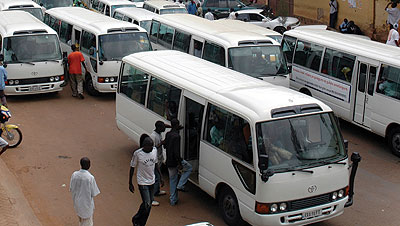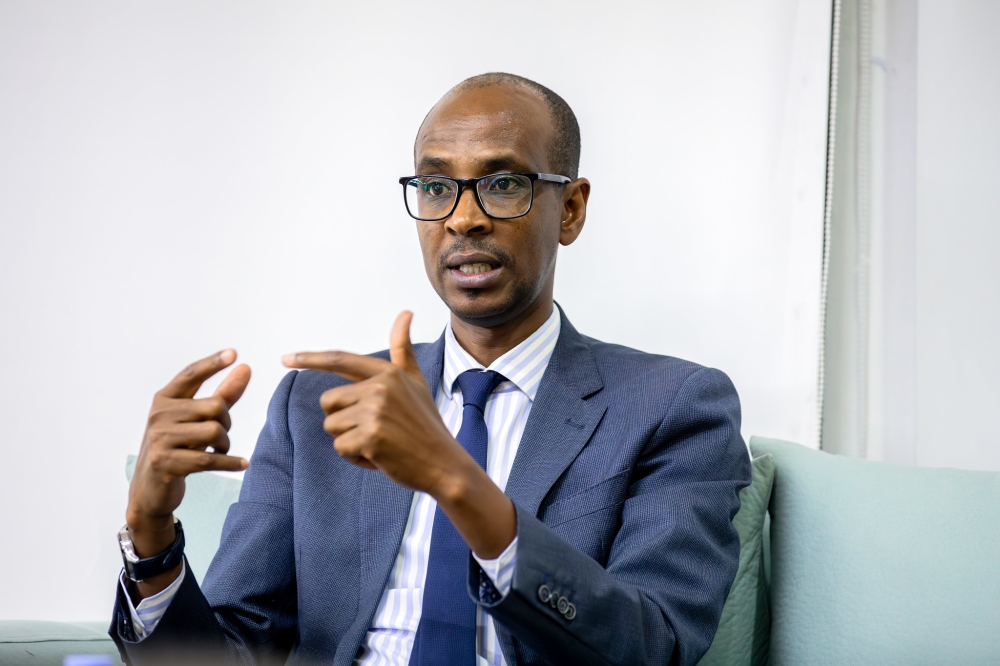Individual public transporters could be kicked out of the business if they don’t register as companies, co-operatives or associations, according to the new policy on public transport.


Individual public transporters could be kicked out of the business if they don’t register as companies, co-operatives or associations, according to the new policy on public transport.Francois Gatarayiha, the Rwanda Utilities Regulatory Authority (Rura) director general, said unlike in the past where the authority has been licensing individual transporters, this will no longer be possible under the new policy. "Unless you are registered as a company, co-operative or an association, we won’t give you an operating licence,” Gatarayiha said in an interview with Business Times last week. "To make our public transport more efficient, competitive and transparent, it is important that all transport companies go through a tendering process before they are allowed to operate on given routes. We believe this will help organise the sector, thus decongesting the city and other areas.” Charles Ngarambe, the president of the Rwanda Public Transporters Association, noted that if the new policy is implemented, it will streamline operations in the sector and also benefit commuters."We have been advocating for the policy to be implemented as it was adopted in 2012. This will not only decongest the city, but also encourage efficiency and professionalism in the sector,” Ngarambe said. He advised transporters, who have been operating under the Rwanda transporters federation to join the association if they are to survive under the new policy.Ngarambe also noted that there was unhealthy competition in the transport industry "because individual transporters operated without control and set fares without consultation”."Anybody with money to buy a bus could come and start operating without anyone’s consent,” Ngarambe noted.However, this is bound to change after the Ministry of Transport and Rura moved to implement the policy. The policy whose implementation was expected effective yesterday (2013/14 fiscal year), is also meant to deal with the rapid increase of population and car ownership. This is blamed for the rise in traffic volumes, congestion as well as the deterioration of overall transport system, especially in city. Antonie Muzindutsi, the executive secretary of the Rwanda Public Transporters Association, blamed individual transport operators were responsible for the many problems dogging the industry, saying they do not meet the required standards. "Imagine the future of the public transport without a clear policy...the public transport sector has worked well in the developed countries because they follow laws. This is what we need to develop the local public transport industry,” he pointed out. He explained that the policy does not exclude sole operators, saying it gives them an opportunity to do business following the right channels. Ngarambe said banks which were reluctant to extend loans to the public transport sector due to lack of a policy would now come on board. "Many transport companies have not been able to access loans. Some of those that acquired loans have since collapsed because of irregularities and unfair competition.” "Now that we have a policy in place, I am sure many transporters will be able to secure funding and buy big buses and hence boost the transport industry,” Ngarambe said.Gerald Mukubu, the Private Sector Federation (PSF) chief advocacy officer, advised sole public transport operators to form associations, saying it was easy for the federation to support and lobby for them when they are organised in groups. "It’s important that transporters operate as one entity. This does not only help them, but also eases commuters’ mobility within the city and upcountry,” he noted.According to the 2013/14 financial year budget proposal, the government has reduced common external tariff (CET) on buses that transport more than 25 persons from 25 per cent to 10 per cent. Buses that carry 50 persons and above had their CET reduced from 25 per cent to 5 per cent. Ttransporters said the move will encourage them to provide the public better transport services.Currently, the total number of registered vehicles in Rwanda is 118,656, 5 per cent of which are omnibuses and buses, while motorcycles make about 49 per cent. However, only 17 per cent of the motorcycles have licences to transport passengers, according the preliminary draft report on planning and design of public transport.Presently, individual public transport operators and companies (41), including Onatracom, provide 72,264 passenger seats. Out of this, individual operators dominate, providing 70 per cent of the total seat capacity.




